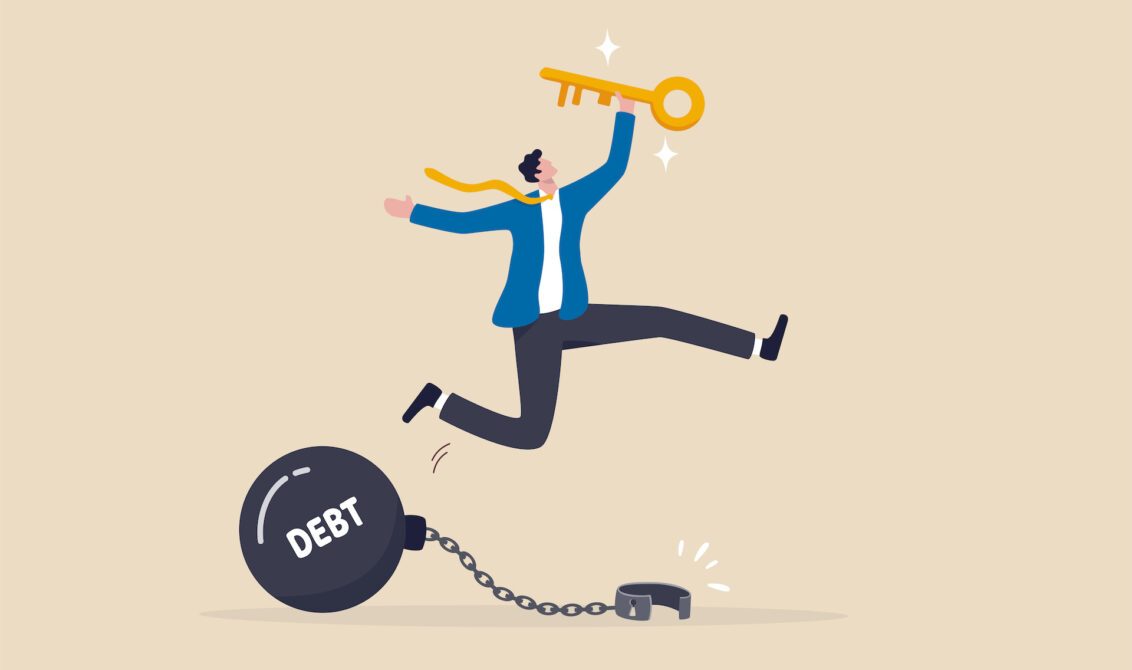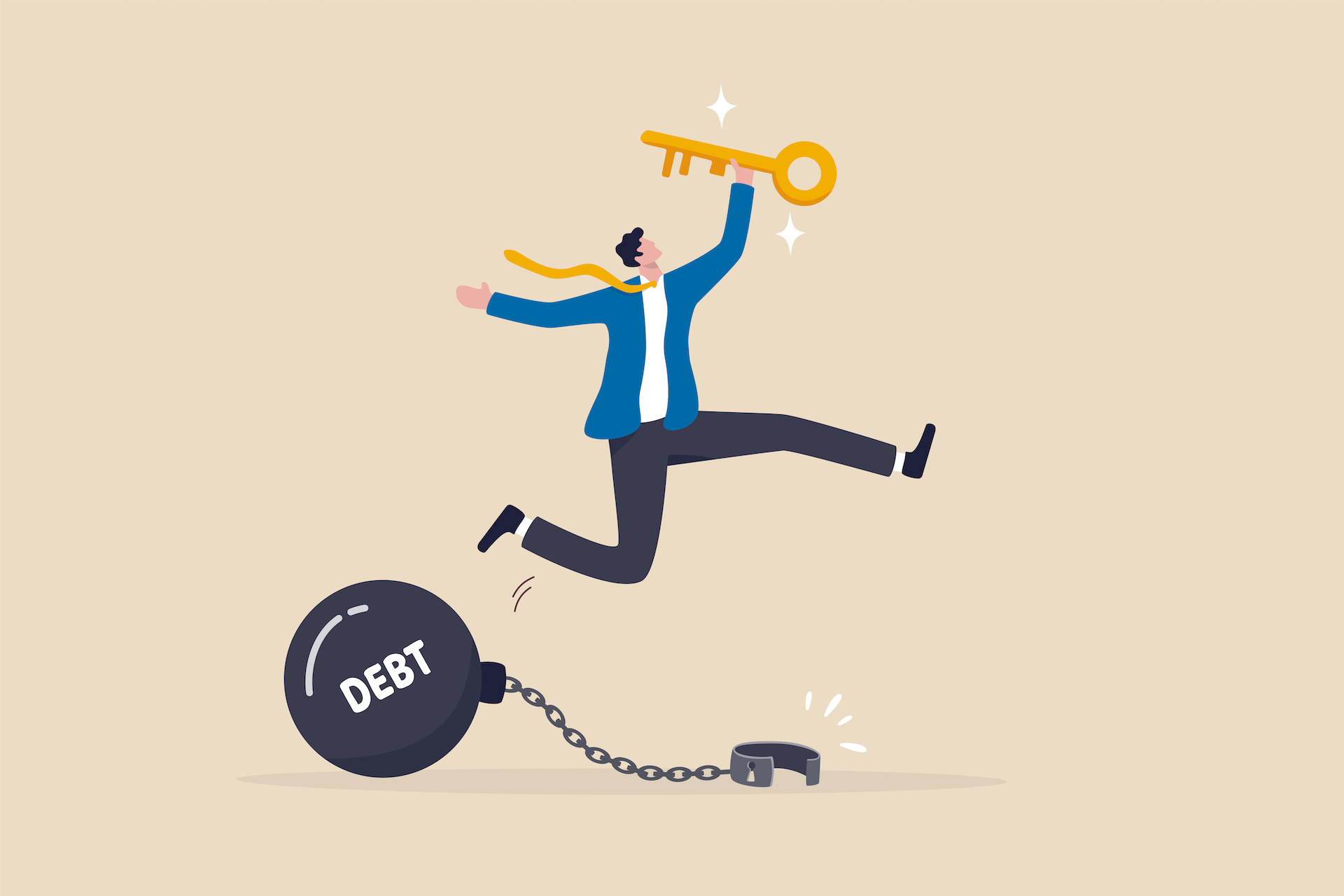It’s really easy to get into debt. As consumers struggle to keep pace with record inflation they lean on credit cards and loans to stay afloat. Meanwhile, wages remain stagnant and the cost of living continues to increase. Dealing with debt can be a long and unnerving process, but it’s worth it.
Decide on a realistic deadline by which you want to be debt-free. This gives you a goal to work towards and provides you with an idea of how aggressively you need to apply the following techniques.
1. Revisit your budget
Take a closer look at your spending habits. If you find it hard to keep tabs on your spending, then there are a lot of budget trackers out there to give you a better understanding of where your money is going.
For example, you might think you are working towards a strict budget, but in actuality, you are spending a lot of money on monthly incidentals (e.g., coffee shops, lunches, taxis, etc.). Reassessing your budget can free up some cash which can go towards paying down debt.
2. Negotiate with creditors
If you are struggling to make repayments, reach out directly to your creditors. They want to be repaid as much as you want to repay them. It is within their best interests to work with you. Not all creditors will allow you to renegotiate your debts, but some will work with you. They might be able to write off some accrued interest and help you develop a workable payment plan. Make sure to ask for any agreement in writing.
3. Automate payments
Automate your payments instead of paying debt off little by little when you have spare money. Your debt should take priority alongside your bills. Set up automatic payments to meet the minimum repayment requirements each month. This can help you pay down debt more quickly.
If you need to prioritize your debt, set up payments for debt with the highest interest rates first, regardless of whether they are your biggest amounts owed or not, given these can quickly snowball in comparison to lower interest rate debt.
4. Consolidate your debt
If you have various types of debt, consider consolidating your debt into one new loan. Tally can help you to consolidate your debt and give you more advice on how to become debt free. Consolidating your debt has a number of benefits; mainly, you only have one repayment which can make the process more straightforward and less overwhelming.
Depending on who consolidates your debt, you will find that loan interest rates are more manageable than your previous rates. However, you do need a decent credit score in order to qualify, although this isn’t a hard and fast rule.
5. Refinance your home
If your debt spirals beyond your control, creditors can begin to seize your assets. Instead, think about using your assets to your advantage, namely, your home. If you own your own home and you have built up enough equity, you might qualify for refinancing or remortgaging. This can free up some funds from your home equity which you can then put towards your other debt and obligations.
Remortgaging your home is somewhat like consolidating your debts, except you use the assets you have to secure the loan; this does mean that your house will act as collateral which can then make things more precarious should you fall behind on the repayments.
6. Start a side hustle to earn extra income
Consider additional ways to make money or supplement your income. The scope of your side hustle will be dependent upon your talents, skill set, and the time you can dedicate to it, but there are a number of options to explore.
If you have marketable and in-demand skills, you could easily become a freelancer. You might also be able to find ways to spin your hobby into an extra income. You should allocate all of the profit from your side hustle to paying off debt quicker than you would otherwise be able to do so.
7. Seek debt management advice
If your debts are particularly hard to manage they can take a toll on your mental health. This is why it’s beneficial to seek out personal finance and debt management advice before things spin out of control.
There are a number of free services (e.g., charities and nonprofits) that can offer the help, support, and advice you need to tackle your debt. They can help you to develop a budget and work with you to create a debt management plan. Some agencies also liaise with lenders on your behalf to renegotiate the debt and provide you with better terms that you are able to meet.
8. Consider the last resort
If your debts are insurmountable and you truly have no other choice, then you can declare bankruptcy. Declaring bankruptcy effectively wipes out outstanding debt and can provide you with a fresh start. That being said, declaring bankruptcy should be seen as a last resort because it severely damages your credit score, which can negatively impact your borrowing strength and finances for years to come. Keep in mind, that not all debts can be dealt with by declaring bankruptcy, so make sure you do your research beforehand.
The Bottom Line
Eliminating your debt is not going to happen overnight. However, you can use the above tips to develop a comprehensive debt management plan that can help you pay off debts and access the tools and knowledge to avoid going into debt again. Accruing debt can have a significant impact on your mental health but remember you aren’t alone; you don’t have to feel hopeless.
© YFS Magazine. All Rights Reserved. Copying prohibited. All material is protected by U.S. and international copyright laws. Unauthorized reproduction or distribution of this material is prohibited. Sharing of this material under Attribution-NonCommercial-NoDerivatives 4.0 International terms, listed here, is permitted.














